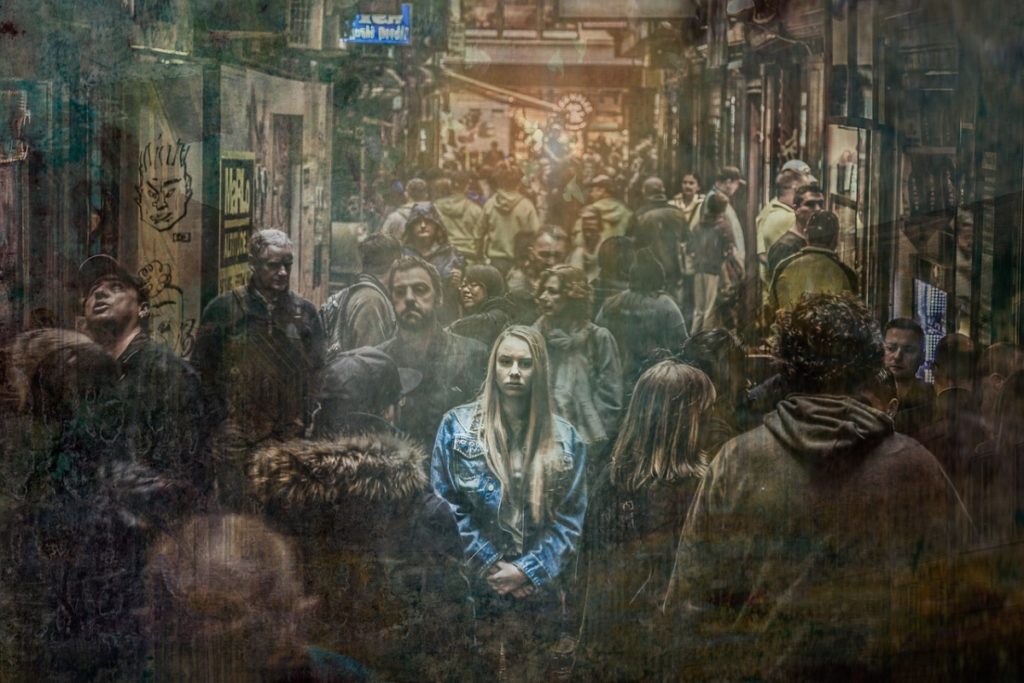Many debates were raised about the condition, including the question of whether cases are genuinely increasing or if we are simply diagnosing it more effectively. However, another malady seems to afflict the majority of the new generation (referred to as Generation Z), which is now entering the workforce and life: anxiety.
If depression was considered the illness of the 21st century up to this point, could anxiety be the ailment of the latter half of the century when young people will be in their old age or middle age?
Anxiety
Before discussing anxiety and the supposed “new illness of the century,” we need to understand what it is and where it comes from. We can say it’s a cousin of fear and is based on a vague, unpleasant emotion that brings tension. It readies our “primitive self” for battle. We still carry primitive DNA, that which comes to us through instinct, and in primitive times, fear and anxiety were beneficial because they kept us alive. Prepared for flight or fight. Anxiety and fear, then, signal to us certain threats even before they happen. Moreover, anxiety can enhance our performance, protect us from strangers, and curb excessive self-confidence.
However, everything has a limit, and beyond that limit lies the “anxiety-illness-of-the-century.” This is when all this fear becomes a constant tension that prevents relaxation, leading to insomnia, trembling, palpitations, sweating, and other symptoms.
Possible Causes
Being anxious is different from having pathological anxiety, which is an anxiety disorder. We will all experience the feelings I described in the previous section at some point in life. Whether due to fear, joy, or anticipation, we will feel anxious, and that’s a normal emotion that needs to be embraced. The point is when it surpasses the limit and becomes pathological. Anxiety no longer remains occasional but becomes an almost constant presence in our lives.
It’s a fact that our world has changed, and anxiety seems intrinsic to this change. If it’s a cousin of fear, it’s a cousin that can become an unwanted visitor since with fear, we know the causes that generate that feeling, but with anxiety, we don’t. The causes are diffuse, conflicting, and even unknown and vague. It’s feeling fear for something you’re not even sure will happen. But it’s understandable in this new era of the world, which is why caution is necessary.
We are in an age where information circulates freely all the time. We have access to information literally in the palm of our hand, through our cell phones. And the first generation that had to adapt to this new reality were the youth, who now cite anxiety as the illness of the century. They had to adapt to the new job market to be a part of it – since their parents’ advice didn’t carry the same weight. They had to learn new technologies through trial and error – as there was no one to teach them. They had to break down paradigms and long-standing societal prejudices – armed with nothing but their own convictions. The new generation, called Generation Z (those born between the latter half of the 1990s and the early 2010s), emerged to be a part of this change. And every change involves dealing with the unknown. Change generates fear. And what’s fear of the unknown? Anxiety.
The overwhelming amount of information and the fear of missing out, also known as “FOMO – Fear Of Missing Out,” is almost a “mandatory” symptom when talking about anxiety in the new generation. The desire to always learn more, to always be ahead, and to always be first is turning our body’s biological response, present in our DNA since primitive times, into a pathology.
So, what to do?
It’s important to talk about anxiety. To explain that it’s a biological response of our body and that we need to know when it crosses the line, when it becomes pathological. And of course, awareness about prevention and treatment is necessary.
In an era of so much information, health information tends to take a backseat. Generation Z never switches off. They work twenty-four hours a day and during breaks, they look up news, curiosities, information… constantly dealing with the unknown.
In this way, with the information people already consume (even if not all of it is 100% reliable), anxiety might not become an illness of the century like depression has become. There’s still time to change the scenario.
It’s important to realize that moments of rest, leisure, and disconnection are as crucial as moments of activity. And of course, visiting a doctor whenever something feels beyond control.
Once understood and comprehended, anxiety can be easily managed. Psychiatrists, psychologists, psychoanalysts, and psychotherapists should work together to raise awareness and provide remedies – whether through medications, therapeutic processes, or simply talking. Talking can heal and letting someone with anxiety speak can be a powerful way to release pent-up feelings.

